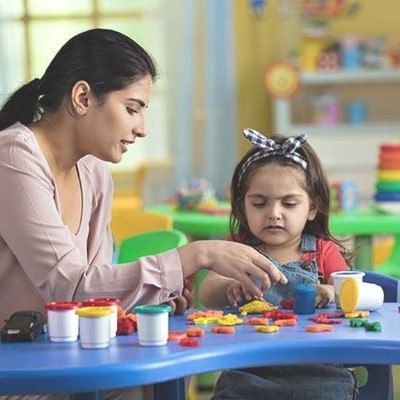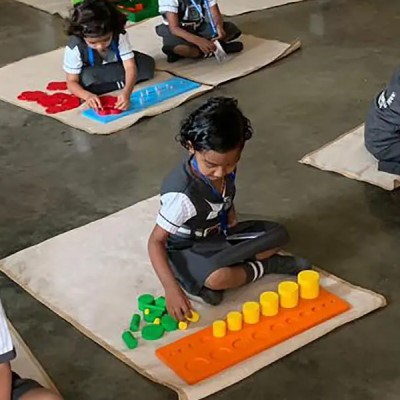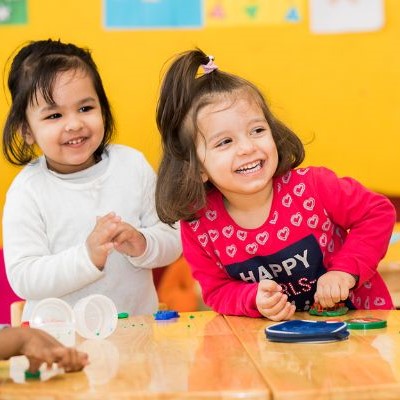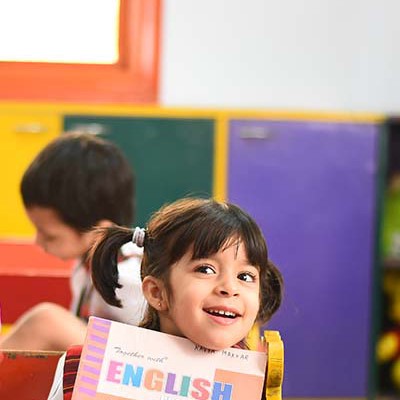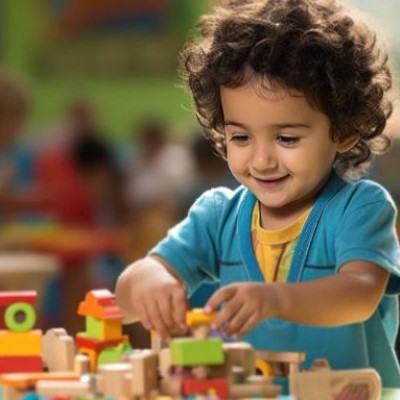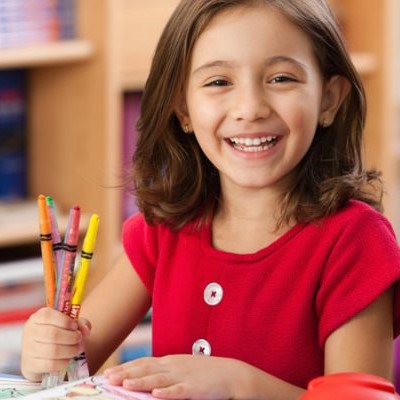Our Prospectus
Our Vision
"Dream. Believe. Achieve"
Our mission is to create an educational environment where children can explore their creativity and nurture social development skills while having fun in a small group of their peers. We strive to provide a safe learning space where every child feels valued and respected as an individual.
Our Mission
We are committed to develop every child to be:
What PANCHAKOSHA VIKASA is in Early Childhood Care and Education
We follow the Kreedo Curriculum which is designed with a holistic approach, incorporating the ancient concept of Panchakosha Vikas (five-fold development) and the Panchaadi (five-step learning process) framework, aligning with the principle of National Education Policy (NEP) 2020.
1. ANNAMAYA KOSHA
(Physical Development)
Focusing on physical growth, motor skills development, and overall health and wellness of the child.
2. PRANAMAYA KOSHA
(Vital Energy & Well-Being)
Nurturing the life force energy through breathing exercises, yoga, and activities that promote vitality.
3. VIJNANAMAYA KOSHA
(Language, Literacy and Cognitive Development)
Developing language skills, literacy, and cognitive abilities through structured learning experiences.
4. MANOMAYA KOSHA
(Socio Emotional and Ethical Development)
Fostering emotional intelligence, social skills, and ethical values through interactive activities.
5. ANANDAMAYA KOSHA
(Aesthetic and Cultural Development)
Cultivating appreciation for arts, culture, and aesthetics through creative expression and cultural activities.
What is Panchaadi in National Curriculum Framework for the Foundational Stage (2022)
Together, these five steps—Adhiti, Bodh, Abhyas, Prayog, and Prasar—form the Panchaadi framework, ensuring that learning is not just about rote memorization but about holistic development, deeper understanding, and lifelong applicability.

Purpose Of Education
"The purpose of education is to prepare the young to educate themselves throughout their lives."
Preschool education is not just about art, music, dance, fun, and fantasy, it is to provide comprehensive learning objectives and having a structured way to achieve these objectives.
We use four key elements to reach these goals:
- Our Teaching Philosophy
- The way we teach and plan activities
- The tools and materials children use
- Teachers who support and guide learning
The Philosophy
Research proves that Early Education is critical because:
- A child's brain grows the fastest in the early years.
- By age 7, most brain connections are already formed.
- The capacity to learn is highest between ages 2 to 6.
Hence, it is important to introduce the child to an environment that provides the right environment to grow and learn. Intelligence is an important factor to consider when a child comes to school.
Inherent Intelligence is the maximum intelligence a child can achieve in accordance with the genes.
Acquired Intelligence is what a child gets with spatial factors like family, culture, and education.
Methodology
Our classrooms are carefully designed to help children learn by doing. Children use different materials in Kreedo lab every day that strengthen their textbook learning. This setup helps children learn on their own, with support offered as needed.
Our teachers are well trained to meet each child's learning needs. They guide, observe, and help children every day. Each teacher handles only a small group of children, so every child gets enough care and attention. The teachers also allow children to explore and learn by themself and interfere only when it is needed. This helps children work more independently without always relying on adults.
Ways Children Learn
Working on their own with learning tools
Doing small group activities in art, language, and movement
Learning through themes and topics
Learning with role-play, storytelling, and reading
Going on field trips
Doing project-based activities for older children
Celebrating festivals and cultural days
Areas of Development
Our curriculum has activities that are specifically designed to help a child in every area of development.
Sensorimotor Skills
- Life skills for daily use
- Using senses to learn
- Body movements skills (gross motor skills)
- Hand movements skills (fine motor skills)
Social and Emotional Skills
- Making choices and solving problems
- Making friends and being independent
Language
- Talking, understanding, vocabulary, and sounds
Thinking Skills
- Maths, science, nature, and learning about the world
Learning at Home
We believe learning continues at home. We include parent feedback and offer tips so school and homework together to support the child.
Ages 2 to 4:
- Practice using hands and doing everyday tasks
- Start English with phonics
- Learn basic math with hands-on tools
- Do activities that build thinking and focus
Ages 4 to 6:
- Grow skills in reading and writing
- Learn more about maths, geography, science, and history
More than Academics

Children choose how they want to work—alone or in groups. They learn to help and ask for help from others. Being with children of different ages makes learning better.
We teach everyday skills like cutting, gardening, and art. Physical play is also a key part of the day to help children grow strong and active.
How We Track Growth
We don't rely on formal tests. Teachers observe children daily and note their progress. This helps us understand how each child is learning and where they need help. From time to time, we use short and simple assessments—not as exams, but as a way to track progress and guide learning.
The 6T Learning Approach
The core of 6T learning framework centers around play based learning, seamlessly integrating essential components align with the curriculum. It consists of various elements including:
Toys & Games
Theory
Timetable
Training
Technology
Teamwork
This innovative approach makes play as the primary means to achieve higher learning outcomes everyday, setting our school apart from the rest.
Assessment
Assessment in the early years of a child has to be a continuous process. Our system constantly checks on the child's progress and helps teachers to keep up with the progress and updates of the child hence they can step in to make any necessary changes.
What Differentiates Us?
Quality Early Education is a necessity not a luxury.
The Practico App
The Practico app is meticulously crafted to guide children aged 2-6 years with learning adventures in Mathematics, Reading, Phonics, Writing and Cognitive skills. It achieves this outcome through engaging, carefully designed games tailored to early learning ensuring higher outcomes.
Mathematics
Reading
Phonics
Writing

Make Appointment

